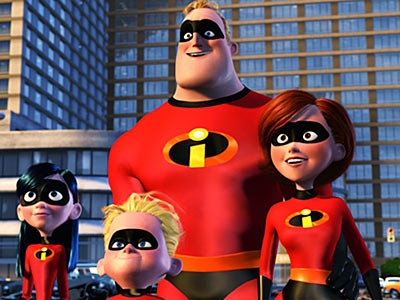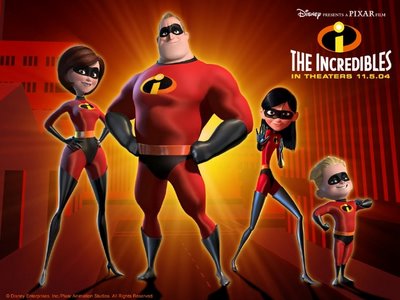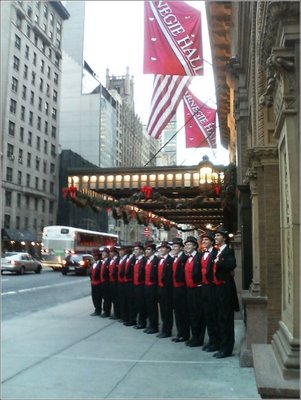
So I'm reading Jung Chang and John Halliday's biography of Mao Tse-tung. OK, I remembered that he played some starring role in making the Earth's most populous nation a communist state, and I had a vague recollection that he was a generally unsavory character (though I would likely feel this about any head of state of long standing). But I really had no idea how great his influence has been on the 20th Century, or just how unsavory he was.
Or how sociopathic. I was honestly shocked to learn that he is responsible for 70,000,000 deaths.
Seventy million human lives.
Jesus. How did I get thru college without that number burned into my consciousness? How do I remember six million jews and not remember a figure nearly twelve times that? A friend posits that for some inexplicable reason Americans are only able to keep one holocaust in the mind at a time, and we seem to have lit upon Hitler as the 20th Century Satan to whom we can most relate. But in this select trio of megalomaniacal sadists--Hitler, Stalin and Mao Tse-tung--(and I mean no disrespect to the victims of any of these monsters) Hitler ends up being the small-timer of the three. I suppose that, of these three nations, Europe is the world culture most like our own, and so it's easier to see ourselves in the events that swept over Europe in the '30s and '40s. Soviet Russia was further removed from first-world Western culture, and China was different animal altogether. Human suffering should be some kind of universal for us, but our ability to grasp the big picture of a thing reduces somewhat in unfamiliar circumstances; our vision narrows. Maybe this has nothing to do with it. Maybe the rest of the world understands Mao perfectly well while I apparently majored in navel lint farming.
I'm only a quarter into a quite long and detailed book, but several things stand out so far. First, there is that same quality in Mao that I've noted before with Lincoln and J.F.K, that quality of being extraordinarily inner-directed and able to focus on a goal often in the teeth of opposition. Maybe by practical definition nobody gets to be a world leader without this quality, but it is something foreign, in degree or kind, to most of us--certainly to me. That Mao wrested control first of the budding Communist party, and then of the entire country, at so young an age is plainly remarkable, a stark demonstration of some functional, if diabolical, genius.
The second thing that strikes me--as it clearly has struck most normal people who study the man--is that he pursued these inner-directed goals with a chilling and complete absence of conscience. He was willing to do or say whatever would further the goals that only he had clearly in mind, and the number of people killed and the amount of suffering his goals would require gave him not one nanosecond's pause. What might have been an antisocial tendency blossomed early on into full pathology, enough so that the question that often recurs to me in these situations of what liberties genius may rightly claim against the unthinking, uncomprehending masses is pre-emptively dashed.
This second point--here's where this whole blather becomes a civics lesson--puts me in mind of a quote from Sam Harris to the effect that the cornerstone of science is not really manipulation and measurement of the natural world, it's intellectual honesty. Either one is engaged in the pursuit of honest truth or one isn't. At its most elementary, science--and, I think, life--must be about an honest assessment of what is, and not of what we wish. And this seems the most functional bit of philosophy we might possibly carry around in our pocket, a principle the sanctity of which we should safeguard above everything else. I'm usually railing against religion when it comes to the willful blurring of the line between fact and fiction, but politics is right there. It's an issue wherever power is involved. In reading this biography, I am immersed in Mao's personal life, and also in the doctrines of communism. Our societal take on Communism is hugely colored by the ruthless dishonesty that has been systematically utilized in its application. Mao is so odious and foul a person that we never get to a place where we can evaluate the economic system which characterizes his reign.
I feel like I'm bringing everyone to kindergarden with me, wallowing around here gape-jawed at the foundation stones of evil. Better, I think, to look at it as a trip back to First Principles. My most elementary moral sense is that we cannot find our way to a place of benefit and goodness by way of a calculated and systematic application of lies and cheating and spin in the way that characterizes Mao's governing style, his regime, indeed his core person. (Would his followers have agreed with any part of my assessment? Would they claim that my judgment of his character was skewed? Or would they have said the ends justified the means?) What kind of person hungrily and ruthlessly pursues sole dictatorial power over half a billion people? OK, the answer is ready enough: a sociopath. But though I honestly feel this, it takes us to an unsettling place. Mao's (and Stalin's and Hitler's and Mussolini's) skillful use of lies and half-truths, and his cynical manipulation of everyone else's good intentions--including those who purport to be his allies; these odious things seem to have made their way to greater or lesser degrees into our own standard political playbook. In practice, if not in theory, we accept as inevitable that politicians must lie to make their way in the world, and we accept that truths are kept from us and that the information we do get is spun and filtered. So is it just a difference of degree?
Mao's story raises all sorts of other ethical and moral questions concerning the structure that he put in place beneath him, and the people who governed in his name and carried out his will. I have to wonder how much, really, Mao's underlings believed the things for which they so gleefully killed people in these thousands and thousands (as I wonder how many people really believe in gods--not what they say, but what they really believe in their most private selves. But that's another post). I suppose people went along with Mao because it was in their best interest to follow the lead of the guy with the gun. But there were always more guns that could be brought to bear against him than what he could wield against everyone else. So does such monstrosity occur because we want to keep our own skin intact? Or can we be so self-centered that there is no limit to what we'll do to others in pursuit of a better life for ourselves? I mean, they can't ALL have been sociopaths, can they? It's the same question asked of German society in the wake of Hitler (to again bring the subject matter to a more comprehensible place).
This is all part of the Cold War and McCarthyism, a subject I recently revisited in George Clooney's "Good Night and Good Luck." From classes in high school and in college it was clear that the Red Scare was not simply an economic phenomenon. "Communism" was an engine to which was attached a weighty train of associations, and these associations swirled around the typical American mind until the contents were thoroughly mixed.
I have no soft spot for Karl Marx--I always felt that his thinking had its head in the sand about some of the base realities of human nature But I could never find my own way from what he proposed to what we opposed, at least not under a single heading. I suppose one might argue that what we opposed was Stalinism, or Leninism, and that when we said communism we really meant one of those other terms. This is all shaky ground for my swiss-cheese education. Still, Marx must wish for a better proponent of his ideas than the unconscionable monsters of Stalin and Mao Tse-tung.
(As an aside, it seems that our formal opposition to communism is ongoing and still fierce. The paper a couple days ago had a little tidbit about the FBI off-handedly releasing more of its John Lennon files--as though everybody knew and accepted that there would be FBI files on all rock and roll phenomena. It seems someone approved the expenditure of government resources to track his association with "leftist" groups. And the slide from "leftist" associations to subversive activities, well, that just goes without saying. My first reaction is to question why, in a free society, it's government's business to keep tabs on anyone's politics? I mean, isn't that what freedom is? Isn't that what free speech is all about? And if one's political convictions are contrary to the group in power--or even to the very governing system itself--is it not a bedrock feature of our system that one is free to express and act on this? Wasn't our very country founded by people committed to this very principle of self-determination? But here's yet another post.)
___________________
1/1 Addendum
I talked above about initial impressions of this influential man about whom I knew next to nothing. I know a bit more now. And I realize that these above thoughts err in looking for some ideological underpinning to the phenomenon of Mao. The more I read, the more I think this misses the point entirely. His meaning lies not in his political ideology, and no evaluation of any larger school of politics to which he claims to belong gets one close to what he means. It isn't about communism. It's about catastrophic psychopathy.
70 million is not really a fathomable concept for us. But the book is full of individual accounts of the perversely inventive use of torture and the creative ways of killing people, episodes resulting in deaths in the hundreds or thousands. These numbers begin to be comprehensible, and give the slimmest handle to the extremity of Mao's brutality (though I might argue that even a thousand deaths by way of torture is still unfathomable unless we can think through each human act of suffering). It's just hard to get one's head around so vast an enterprise of cruelty and wanton infliction of suffering--indeed, maximum pain and suffering were the goals to which these people put their creative minds. This is monstrosity of the highest order. Mao simply killed with gleeful and satanic abandon anyone who stood in his way to any degree whatsoever. And many who didn't. He killed vast numbers of people just so that others might see it and live in fear. The brutality and cruelty is so extreme that one begins to understand where the concept of hell comes from. It's really hard not to wish infinite suffering on such a person, to desire to instruct them with the very things they have striven to inflict on others, things from which they were isolated with cool calculation. (Apparently Mao had secret escape passages installed in every residence from an early age, so that he could evade capture and, no doubt, the very treatment from his captors that he made his name inflicting on others.)
There's a great line spoken by Colin Firth in Frank Pierson's Conspiracy, a 2001 TV movie about a Nazi conference held in Wannsee where the details of the so-called Final Solution were worked out. Firth plays a lawyer who is concerned about the legality of what is being proposed:
"Any legal code worthy of the name restricts the enforcers of the law as well as its subjects; there are some things you cannot do."
It's ironic that it's a Nazi speaking these words. And, as we all know, his views were not honored.
























